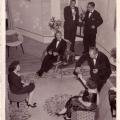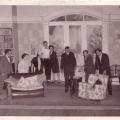Candied Peel
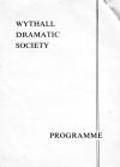
Venue : Woodrush High School
Date : March 1961
Genre : Drama
Director

John E. Clarke
Director
Cast

Jim Munden
James Ondersley

Brenda Castle
Lucy French

Peggy Osborne
Mrs Seddons
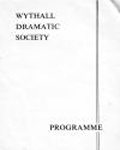
Candied Peel
Grace Lenner

Barbara Clulee
Henrietta

Margaret Foster
Miss Pethington
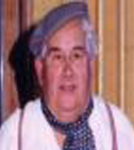
Ted Pedvin
Dr Wadd
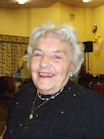
Peggy Tomlin
Claire Brisby

H. Frank Barter
Leonard Brisby
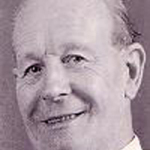
Jack Parramore
Oswold Monk

Megan Williams
Mrs Corntonhart
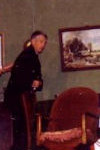
Gerry Smith
Mr Harris
Crew
Crew
Production Gallery
Production Reviews
Curtain Up Tonight
With their latest play opening tonight for a two night. Wythall Dramatic Society are hoping to beat their record of nearly 600 attendances at the last play in November.
The company, who chose a nautically spiced comedy “The Blue Goose” last time, have chosen a drama of big business and murder in “Candid Peel,” for their latest offering in Woodrush Secondary School.
There will however be and undertone of comedy to relieve the tension in this play by Falkland Cary, which will have the latest in contemporary settings to sit it off. It will be their sixth offering.
A Play with a large Cast!
Wythall Dramatic Society had difficulty in choosing in choosing a play for their next production, which opens on performed on the Saturday.
“We wanted a play with a fairly large cast, because we are a growing society,” said the publicity manager , Mrs Peggy Osborne, “but we found that most of the favourites had a fairly small cast, and most of the modern plays were a bit sophisticated for us to put on.”
Comedy-thriller
They eventually settled on Faulkner L. Carey’s “Candid Peel,” which is a comedy-thriller. They play at the Woodrush School, Hollywood, and are the only dramatic society which caters for this fast growing area.
Wythall Society gave good value for money
It is the cast of “Candid Peel,” performed last week by the Wythall Dramatic Society, had any doubts that the vast hall at Woodrush School would be filled for their play, their doubts were quickly dispelled well before the curtain rose. The members of the audience were prompt, numerous and polite, so helping to dispel the first night nerves (not to mention “third major production nerves”) which the cast must have felt.
The curtain rose on an elegantly contemporary drawing room set, planned and constructed by Sid and Rene Wilkes, which provided a background for the entire play.
James Ondersley, played by Jim Munden, is the chairman of a successful business concern with a branch in Scotland, from where his ward, Grace Lennor (Pamela Middleton), has just returned from holiday. When he asks her to marry him, she refuses, telling him that she is in love with a young man she met on holiday, but refuses to name him, since she has decided not to see him again.
At this point, there is a scene which was somehow, not as touching as it might has been. Perhaps this was because Mr Munden and Miss Middleton did not allow themselves enough licence with the script to enable them to depart from the rather stilted dialogue which forced them to artificial repetition of monosyllabic words (“If, - if …”) which the author surely intended to be simply a slight emotional stammer.
After the proposal to his ward, Ondersley is visited by the eccentric of the village, Miss (“the Vicar calls me ‘Pussy’”) Pethington, cleverly played by Margaret Foster who added comedy to her character by convincing display of absentmindedness coupled with and ostrich-like deportment which suggest extreme myopia. She enthusiastically reveals that she would like Mrs Ondersley to contribute to here society for the study of eugenics, which, she explains are the improvement of the human race by the application of the laws of heredity.
Relaxed and Assured
On her departure, Dr Wadd, the village medical practitioner and friend of Ondersley, arrives before the dinner guests. Edward H. Pedvin played Dr Wadd with a professional relaxation – a quality present in Peggy Osborne’s representation of Mrs Seddons, the melancholy housekeeper.
Credit must also be given to Jack Parramore for his interpretation of Oswald Monk, a research chemist and business associate of Ondersley who has a school boyish wit, and a tendency to construct hypothetical “thriller” situations which, uncannily emerge as facts in the story.
Megan William’s portrayal of Mrs Corntonhart was also praiseworthy. She made the brusque, domineering woman live up to Ondersley’s descriptions of her (“a cross between Cleopatra and an angry mule”). Together with Leonard Brishy (H. Frank Barter), Ondersley’s ultra-respectable, blustering business partner, and his nervous, indecisive wife, Claire Brishy (Peggy Tomlin), the other guest gather in the drawing room with Lucy French (Brenda Castle). James Ondersley’s secretary, to be told by Ondersley that he suspects that one of them has attempted to murder him by poisoning his favourite confection. Candid Peel. He discovered that the peel contained tetracil when his dog died after eating some out of a box intended for Ondersley.
When a Scotland Yard inspector Mr Harris (Gerald C. Smith) arrives and finds Ondersley dead in his bedroom , the plot becomes increasingly involved, Mr Harris’s “preliminary and unofficial” enquires drag several skeletons our of the guests’ cupboards: each visitor having his or her own reason for wishing to dispose of “J.O.”
But it is the end of the play which holds the most surprises, one of them being that “J.O.” is not as dead as is generally supposed and it is, in fact, the corpse who eventually solves the crime!
Although one felt that the play, by Falkland L. Cary, would have been more convincing if the action had been set in the 1920’s (the appearance of a conventionally-uniformed maid summoned by a service bell near the fireplace seemed oddly outmoded against the present-day setting), it was nevertheless a highly entertaining performance.
If producer John Clarke and director Bob Aldridge can persuade their cast to interpret rather than slavishly follow the scrip, the genuine appreciation which was shown by the audience should be even greater.
M.C.H, Local Paper



